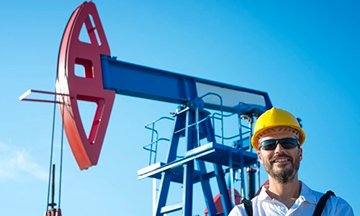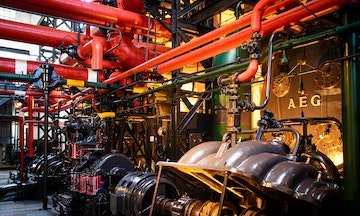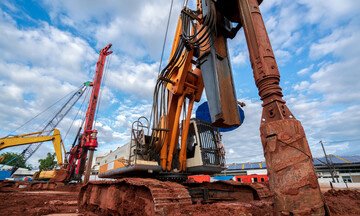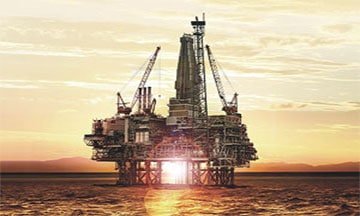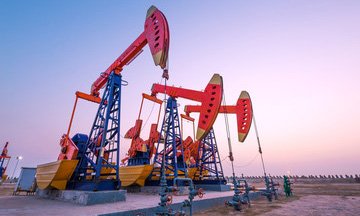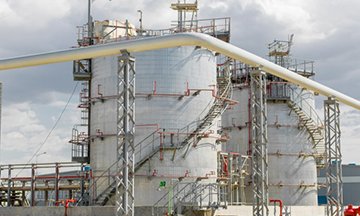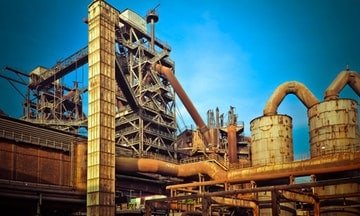Petrophysical Properties, Modeling, Journal, Analysis of Well Logs and Interpretation
| Date | Venue | Duration | Fees | |
|---|---|---|---|---|
| 06 May - 10 May, 2024 | Dubai | 5 Days | $4750 | Register |
| 03 Jun - 07 Jun, 2024 | Dubai | 5 Days | $4750 | Register |
| 30 Jun - 04 Jul, 2024 | Doha | 5 Days | $4950 | Register |
| 22 Jul - 26 Jul, 2024 | Dubai | 5 Days | $4750 | Register |
| 26 Aug - 30 Aug, 2024 | Dubai | 5 Days | $4750 | Register |
| 16 Sep - 20 Sep, 2024 | Dubai | 5 Days | $4750 | Register |
| 28 Oct - 01 Nov, 2024 | Dubai | 5 Days | $4750 | Register |
| 18 Nov - 22 Nov, 2024 | Dubai | 5 Days | $4750 | Register |
| 09 Dec - 13 Dec, 2024 | Dar Es Salam | 5 Days | $4950 | Register |
| 09 Dec - 13 Dec, 2024 | Dubai | 5 Days | $4750 | Register |
Course Overview
This course will introduce and familiarise you with the fascinating world of petrophysics, the relationship between the rock, the fluid it holds and its interactions, from the downhole response to the actual formation assessment procedures and techniques.
You will discover and explore the tools response to different lithologies which will help you understand log readings, applications and limitations. It will instruct you with the necessary Petro-physical concepts as well as the log interpretation techniques and procedures for the correct evaluation of well logs on clean and shaly sand formations.
This Zoe course will emphasise and feature the principles and techniques of well log interpretation for oil industry professionals and experts who deal with wireline and/or LWD logs. Advanced interpretation techniques and methods will be deliberated with several examples and exercises involving complex lithology interpretation techniques.
Course Objectives
Participants will learn about the following areas:
- Reservoirs and Logging
- Reservoir rock and basic logging
- Life of a well
- Spontaneous Potential (SP)
- Natural Gamma Rays (GR) and the six basics and fundamentals of resistivity
- Types of Measurements
- Acoustic measurements
- Neutron porosity measurement
- Density measurements
- Deep reading resistivity (Rt)
- Rxo, Archie’s Equation, and Vsh
- Shallow reading resistivity (Rxo)
- Archie’s Equation and determining saturation
- Computing the value of Vsh
- Interpretations for reservoir characterization
- Carbonate Challenge and Wireline Formation Testing
- Computing and calculating Sw in the presence of Shale
- The carbonates challenge
- Wireline Formation Testing (WFT)
Training Methodology
All courses at Zoe Talent Solutions are completely customisable as per the training audience. Thus, before each and every session, the content is thoroughly reviewed to check for changes. The training is facilitated by an experienced professional from the relevant domain. Two-way participation in the training course is encouraged through group activities, projects, role-plays, etc. Experiential learning and situational analysis form an essential part of the training.
Zoe Talent Solutions follows the Do–Review–Learn–Apply Model.
Organisational Benefits
With professionals undertaking this ‘Petrophysical Properties, Modeling, Journal, Analysis of Well Logs and Interpretation course’, their organisations will benefit in the following ways:
- Select the best optimum solution for logging
- Design efficiently the logging according to reservoir environment, well conditions and parameters
- Take the in-depth data from the ordinary log
- Build sequential understanding for the petroleum reservoir to complete the puzzle of hydrocarbon potential
- Achieve the best usage of the conventional logs to lower the need for advanced high-cost logging tools
- Integrated approach for field evaluation that will aid in the economic feasibility studies
Personal Benefits
Professionals enrolling for this ‘Petrophysical Properties, Modeling, Journal, Analysis of Well Logs and Interpretation course’ will derive the following benefits:
- Comprehensive understanding of all aspects of petrophysics to build a successful career in this domain
- Increased understanding and confidence to obtain good, representative interpretation for efficient evaluation
- Greater knowledge of new concepts and methods for well logging to achieve closest and most accurate results
- Enhanced analytical and out of box skills to interpret data and draw the most accurate conclusions to aid effective decision making
- Increased confidence and experience to train other professionals on all critical skills needed to become a successful petro-physicist
- Better awareness and understanding to choose the correct modeling methods as per the requirement and circumstances
- Enhanced perspective and foresight to identify hindrances and challenges to logging environment and prevent these from affecting the results
- Greater potential and ability to contribute to organisational growth through effective feedback, thereby increasing one’s scope for career progression across any organisation
Who Should Attend?
- Senior management members of an organisation involved in petro-physical modeling
- Employees partaking in the petro-physical modeling for an organisation
- Managers responsible for overseeing petro-physical modeling results
- Legal consultants and advisors responsible for hydrocarbon field potential evaluation
- Any professional across any profile in the petroleum industry with aspirations to build a career as a petro-physicist
- Any other professional interested in being certified as a petro-physicist
Course Outline
The course covers the following areas important for one to become a certified petro-physicist:
Module 1: Overview of Logging Data
- Logging Database setup
- Quality Control data
- Loading data (from DLIS or LAS files)
- Data presentation
Module 2: Data Tuning
- Depth Match between different well data (WL, LWD,…)
- Curve Splicing (merge) between different log runs
Module 3: Reservoir Environment Analysis
- Lithology identification from wireline logs
- Using different cross plots
- Different methods for Reservoir zonation
Module 4: Determine Factors Influencing Modeling Results
- Create temperature curve & temperature gradient
- Determination of fundamental petro-physical parameters (Rw, m,n,..)
Module 5: Quanti Analysis for Shale Characterization
- Shale volume calculations
- Determination of clay minerals
- Using different cross plots
Module 6: Quanti Analysis for Reservoir Characterization
- Porosity models & calculation methods
- Saturation models & calculation methods
Module 7: Quanti Analysis Results Representation and Tuning
- Cut-off and Summation
- Cross plots for Lithology, porosity and water/oil/gas saturation
Module 8: Quanti-Elan
- Initialization
- Construction of Formation Evaluation models
Module 9: Reservoir Integrated Petro-physical Modeling
- Combining formation evaluation model
- Post Processing Calibration of apparatus
Module 10: Introduction to Cased Hole Logging
- Cement evaluation logs
- Reservoir saturation tool
- Pulsed neutron saturation tool
Module 11: Introduction to Production Logging
- The concept for production logging
- Production logging tools and sensors
Module 12: Core Data Integration with Logging Data
- Porosity modeling
- Permeability modeling
- Saturation height modeling



